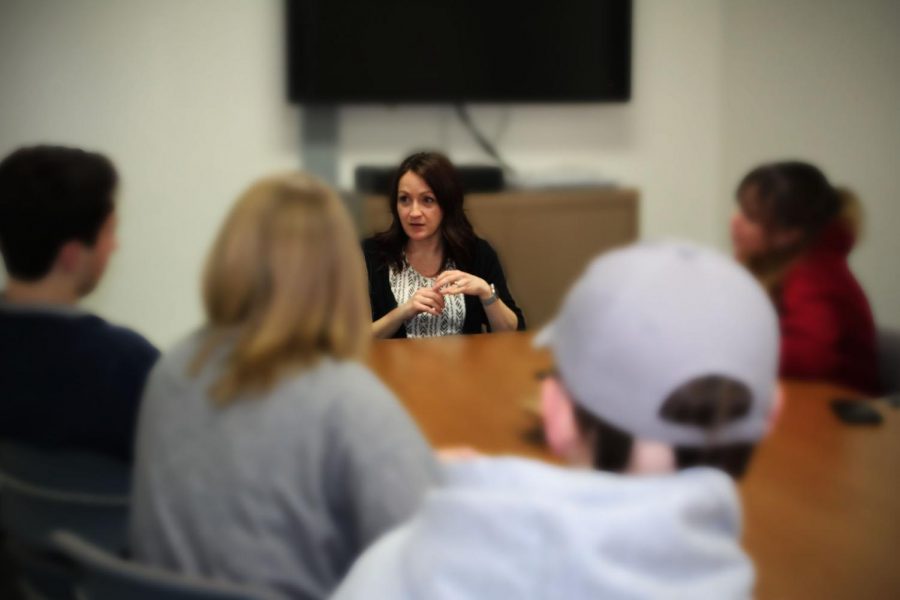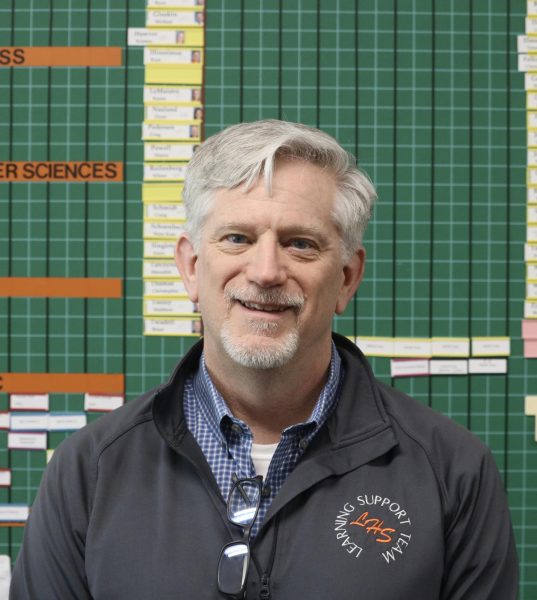Support Groups at LHS
Mrs. Emily Eichmeier, one of the school’s social workers, runs some of the various student support groups offered. The groups give students a safe environment where they are able to talk and relate to other students who may be experiencing similar circumstances
LHS offers a wide variety of support groups that provide students with the opportunity to discuss challenges that are going on in their personal lives in an environment with students who have undergone similar experiences. The support groups offer an atmosphere where students are introduced to peers they may normally never have the opportunity to talk to.
The meetings are usually held once a week during different class periods, in order to ensure that no student misses too much time of one class. The group sessions are usually led by two of the three social workers: either Greg Loika (from the A-F LST), Emily Eichmeier (from the G-P LST) and Lindsay Recsetar (from the Q-Z LST).
“I always try [to] sit back and let [the] students respond first because I think that it’s so powerful for you guys to hear from one another and get advice from one another when you have gone through something so similar and just to have that support from your peers is a really cool thing,” says Mrs. Recsetar.
In agreement, Mrs. Eichmeier stated, “I think that students are getting some really great peer support. I think it’s really amazing to have someone your own age say, ‘I am experiencing the same thing’ or ‘I’ve been through that — here’s how I’m dealing with it…’ Certainly us adults are there to support students and offer suggestions, but what I think is really great about groups is that shared experience.”
The group atmosphere, of students around the same age going through similar events, can make their situations seem less isolating. It can be difficult for some students to talk with people who have not been through a similar experience.
“Groups help with issues you are too afraid to face yourself,” stated an anonymous student in one of the support groups. This quote was provided by Mrs. Eichmeier, who leads the group that the student is involved in.
Additionally, confidentiality has never been an issue for the support groups at LHS, the social workers reported. Students in the group are frequently made aware that what is said in a session stays in a session and will not spread around the school.
Currently, LHS has an LGBTQ Group (for students who identify as lesbian, gay, bisexual, transgender or questioning); a Changing Families group (for students who have a change in their family structure); a Concerned Others group (for students who are affected by drug or alcohol addiction in the family); a Loss Group (for students who have lost an immediate family member); a Boys Group (that discusses issues that boys usually deal with); and a Girls Group (that discusses issues that girls frequently deal with).
If there is a group that you or someone that you know is interested in creating, the door to a social worker’s office is always open to discuss the idea, they said.
Every year, the social workers give a presentation to freshmen in Link Crew and send out a survey to all students regarding the support groups offered by the high school. The presentation and survey give students a way to let the social workers know that they would like to partake in the meetings. Students can also ask their LST at any time throughout the year to join a support group, and the groups may be recommended to students by their teachers or the social workers themselves.
If you or a friend are nervous to attend a support group for the first time, Mrs. Recsetar has the following advice: “Go in with an open mind…The students that are in the groups love them and they come every week voluntarily because they get a lot out of them. A lot of students have been in certain groups for maybe two years [or] three years. They come back every year because the groups in a way end up becoming like a small family.”
Going to a meeting, or even a few meetings, does not force students to commit to the support group. “You can just come once, sit back, watch how it goes, [see] what the layout of a group is like and if you feel like, ‘Okay, I think I could handle that,’ then keep coming and give it a try. If it totally makes you uncomfortable and stresses you out sitting there, then you don’t have to come back,” Mrs. Recsetar said.
Regardless, the goal of the support groups is to help and support students.
“Everyone in the groups are so welcoming and happy [and excited] when we have new people come,” Mrs. Recsetar said. “They just want to be able to help so it’s a really great place.”












